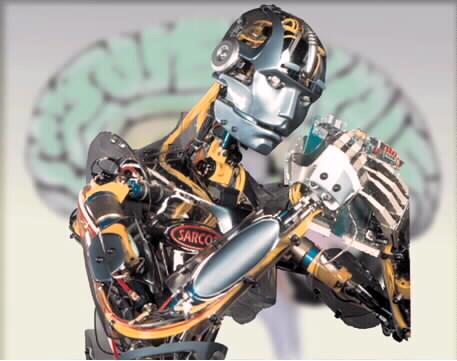In the battle of spam filtering, the art of war is machine learning, which keeps systems updated with the help of data. When you mark an email message as spam, you are contributing to a vast data set that helps the machine learning of filtering tools for Gmail or Yahoo or whatever else is your email provider.
The development successes of machine learning in recent years was the focus of a presentation from Michael Becker, a data scientist at AWeber Communications and founder of the Data Philly Meetup, Wednesday at Callowhill incubtor Venturef0rth.

Following a brief introduction by Jon Gosier, MetaLayer‘s founder, he turned the presentation over to Becker. Becker immediately jumped into the language of programming and data where he focused on machine learning and its contributions to the technological and business spheres.
Machine learning, a branch of artificial intelligence, is a scientific discipline that involves computers programmed to learn as a human does. Method and data sets are developed in programming software like C++, Java and Python. Becker broke the concept down, explaining that this type of computer intelligence is beneficial for things like spam filtering, fraud detection and price modeling.
“I think lots of companies look for this sort of information—being able to categorize and use this data,” Becker said.
http://www.youtube.com/v/8FVme_xIRYk?version=3&hl=en_US&rel=0
The concept of machine learning, which is essentially, data-driven pattern matching, is more broadly impactful than email filtering, which is why it’s among the more popular Stanford University online courses:
- Advancement of humanoid robots — By tracking the reactions to physical, vocal and decision making movements, robotics is leaping forward backed by machine learning, as we saw with news of this humanoid child expression this month.
- Healthcare administration efficiencies — With the paperwork and forms and incredibly important details that flood the healthcare industry, there are a number of ways to approach making systems more automated. One is machine learning, as Boston’s Predilytics is doing.
- Wearable technology — How can digital tools embeded in clothes learn to alert potential medical problems, track athletic performance and more? Well, Nike, for one, is trying to find out.
- Better energy efficiency efforts — When humans don’t make the best calculations about how to heat, cool and maintain their homes and other buildings, smarter, machine learning structures could, as BuildingIQ is attempting.
The presentation concluded with an demo of IP[Y] Notebook. Using Python, algorithms were inputted, which outputted images based on the command. This on-screen demo has perpetuated machine learning in programming.
Becker made the importance of machine learning clear—algorithms and data that are inputted into software programmed by the human mind catalyzed the capabilities of technological intelligence.
Wrapping up questions, Becker invited the more than 60 attendees to a nearby bar.
This report was done in partnership with Temple University’s Philadelphia Neighborhoods program, the capstone class for the Temple’s Department of Journalism.







